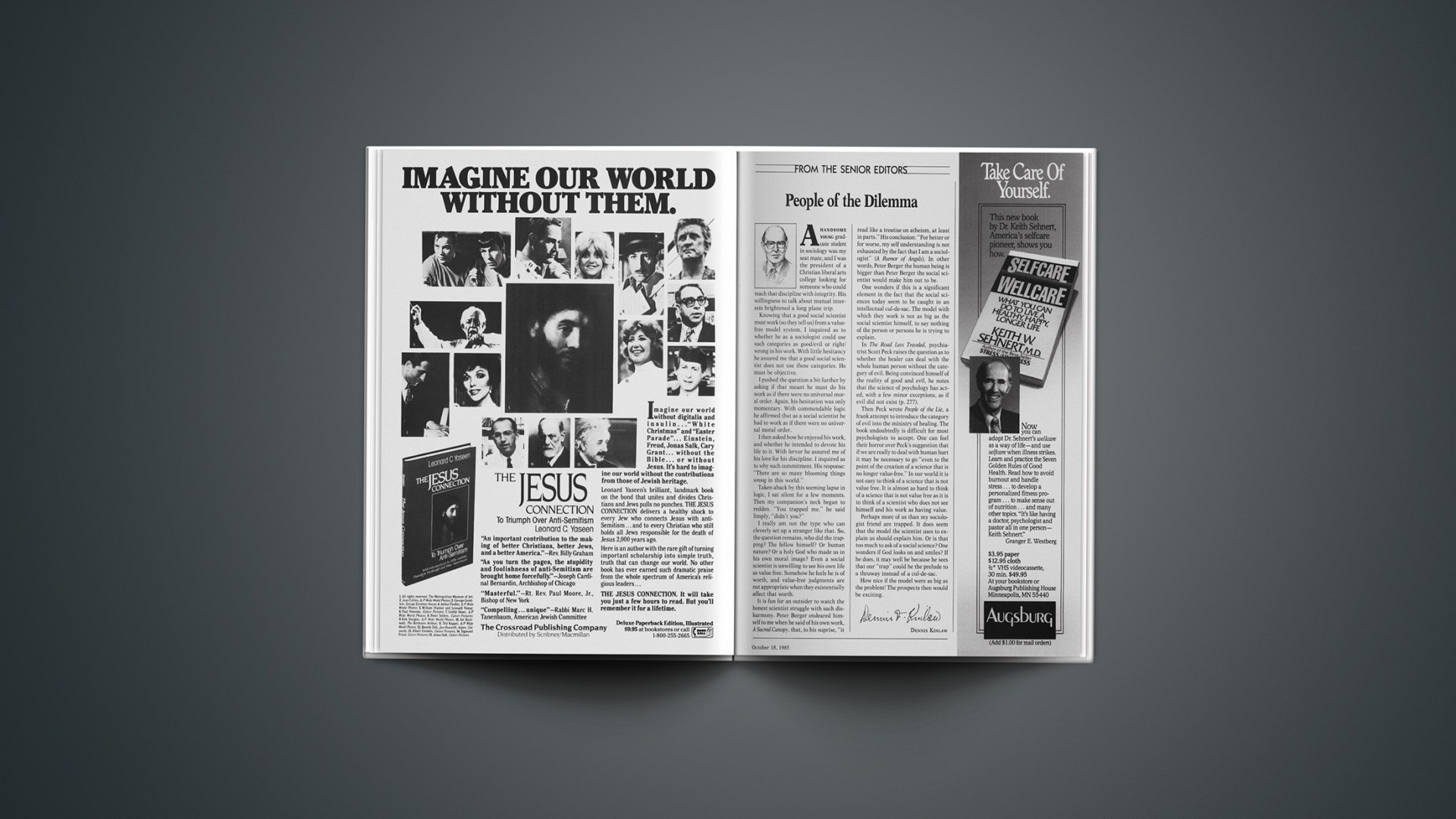A handsome young graduate student in sociology was my seat mate, and I was the president of a Christian liberal arts college looking for someone who could teach that discipline with integrity. His willingness to talk about mutual interests brightened a long plane trip.
Knowing that a good social scientist must work (so they tell us) from a value-free model system, I inquired as to whether he as a sociologist could use such categories as good/evil or right/wrong in his work. With little hesitancy he assured me that a good social scientist does not use these categories. He must be objective.
I pushed the question a bit further by asking if that meant he must do his work as if there were no universal moral order. Again, his hesitation was only momentary. With commendable logic he affirmed that as a social scientist he had to work as if there were no universal moral order.
I then asked how he enjoyed his work, and whether he intended to devote his life to it. With fervor he assured me of his love for his discipline. I inquired as to why such commitment. His response: “There are so many blooming things wrong in this world.”
Taken aback by this seeming lapse in logic, I sat silent for a few moments. Then my companion’s neck began to redden. “You trapped me,” he said limply, “didn’t you?”
I really am not the type who can cleverly set up a stranger like that. So, the question remains, who did the trapping? The fellow himself? Or human nature? Or a holy God who made us in his own moral image? Even a social scientist is unwilling to see his own life as value free. Somehow he feels he is of worth, and value-free judgments are not appropriate when they existentially affect that worth.
It is fun for an outsider to watch the honest scientist struggle with such disharmony. Peter Berger endeared himself to me when he said of his own work, A Sacred Canopy, that, to his suprise, “it read like a treatise on atheism, at least in parts.” His conclusion: “For better or for worse, my self understanding is not exhausted by the fact that I am a sociologist” (A Rumor of Angels). In other words, Peter Berger the human being is bigger than Peter Berger the social scientist would make him out to be.
One wonders if this is a significant element in the fact that the social sciences today seem to be caught in an intellectual cul-de-sac. The model with which they work is not as big as the social scientist himself, to say nothing of the person or persons he is trying to explain.
In The Road Less Traveled, psychiatrist Scott Peck raises the question as to whether the healer can deal with the whole human person without the category of evil. Being convinced himself of the reality of good and evil, he notes that the science of psychology has acted, with a few minor exceptions, as if evil did not exist (p. 277).
Then Peck wrote People of the Lie, a frank attempt to introduce the category of evil into the ministry of healing. The book undoubtedly is difficult for most psychologists to accept. One can feel their horror over Peck’s suggestion that if we are really to deal with human hurt it may be necessary to go “even to the point of the creation of a science that is no longer value-free.” In our world it is not easy to think of a science that is not value free. It is almost as hard to think of a science that is not value free as it is to think of a scientist who does not see himself and his work as having value.
Perhaps more of us than my sociologist friend are trapped. It does seem that the model the scientist uses to explain us should explain him. Or is that too much to ask of a social science? One wonders if God looks on and smiles? If he does, it may well be because he sees that our “trap” could be the prelude to a thruway instead of a cul-de-sac.
How nice if the model were as big as the problem! The prospects then would be exciting.










